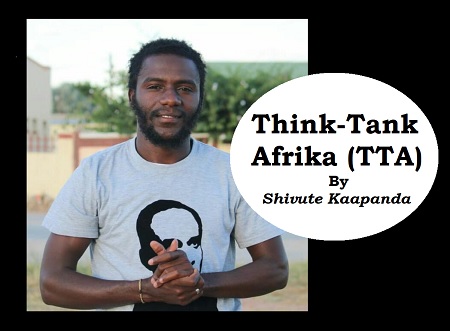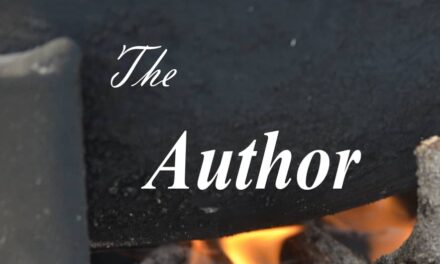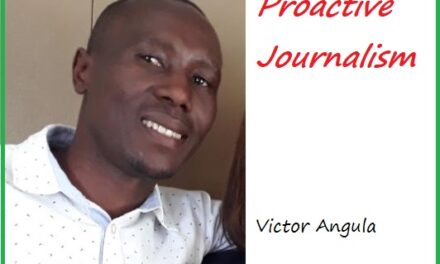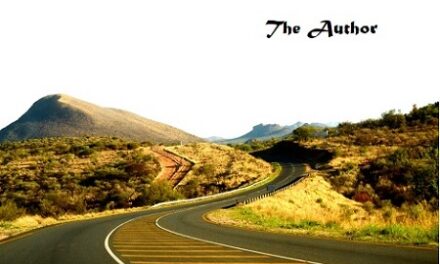Lack of critical indigenous knowledge in formal education is problematic
By Shivute Kaapanda [Think Tank Africa]
Formal education is in general a tool for emancipating society from economic and social ills by creating and teaching knowledge and skills needed in all sectors for society to prosper.
Of course education is a playground for knowledge acquisition and critical as well as academic reasoning in a so-called modern world.
The success of education itself was not supposed to be used for bragging around telling people that one is holding a master’s degree or a doctorate in a specific field and therefore one is educated as many graduates are seen doing in Namibia.
It’s not even something one supposed to insult people over but rather to be used to teach society and steer it in a proper direction through anything that an educated person is able to offer for society including social development, economic development and all other means of emancipating society through knowledge distribution.
The majority of graduates with different levels of qualifications in Namibia are seen in the streets, on social media platforms and in villages telling society how much they are educated without even showing society how practically are they educated apart from speaking some English with a borrowed accent.
Very few of them are trying their level best to do what they got out of the tertiary education system as well as vocational institutions. Those who have succeeded to become workers in different sectors are seen on social media and streets harassing the uneducated masses, masquerading as industry professionals telling society how much their status of “being educated” has earned them bread and honey on their table.
They are mostly seen on television wearing suits and ties representing a bunch of “slaves” who just got out of universities to be employed while the majority are allowed by their status of being educated to undermine their indigenous knowledge; because the education system told them exactly that.
Most of them are not aware of knowledge of self; of course they do believe that the white education they got is the panacea to life and it’s their way to prosperity which of course it is not but this was hidden from them by the education system.
Many of them are wallowing in the flood of the white education knowledge system; indigenous knowledge is alien to these so-called educated individuals. It’s alien to them because it does not teach them modernity which is characterized by western ways of doing things taught as formal education and taught to undermine the African indigenous knowledge system.
At the core of African education is the indigenous knowledge which modern universities are ignorant about. Indigenous knowledge is the organic knowledge about the society, its politics, economics and home-made philosophies by the society’s indigenous people.
Modern universities don’t teach this most likely because these institutions of knowledge are controlled from elsewhere, and it’s not really in their interests to teach African indigenous knowledge.
The modern school system in both tertiary and elementary education has limited the teaching of indigenous knowledge only to households in villages; with the exception of universities, it’s in these villages that most of these schools are accommodated.
The ignorance of the government in integrating the indigenous knowledge in the formal education system is very much problematic because without the ingredient of the African indigenous knowledge the version of formal education will never speak to the needs of society, but it becomes a playground for foreign knowledge system only.
Look at the example of a grade 4 leaner at Olupaka Combined school in Eyanda village where a leaner is presented with a case study to answer questions on a movie ‘The tales of Edinburgh” which was played in London years ago when that specific leaner from deep down the village knows nothing of what a movie is, never travelled to London or Edinburgh and the possibility for that leaner to have never seen a white person in person is very high.
For the leaners the whole class exercise becomes a real scandal, the scenario does not speak to the environment they live in neither does it speak to their language system, but rather movies are ‘witchcraft’ in the community where they live. To the leaners in this case the education system becomes a compatibility error.
The education system reminds students of very few things back at home; in most cases leaners are left to imagine things they do not know.
Why would a black child be proud of this education system? Why would an African graduate be proud of a tertiary education system which teaches him or her to undermine how things are done back at home?
Imagine a graduate of agriculture in Namibia opting for a cashier position in a capitalist food retail shop called Shoprite instead of establishing a backyard garden and sell the produce to the community including Shoprite.
As Africans we have a duty to undo this without the permission from the gatekeepers of the colonial education system. The importance of indigenous knowledge in formal education is very legit. We must begin to decolonize before we kiss our knowledge of self a goodbye.
* Shivute Kaapanda is a Pan-African writer, columnist and author of the book called “The Conscious Republic”. He is from Eyanda village, Omusati Region.iskaapanda@gmail.com







